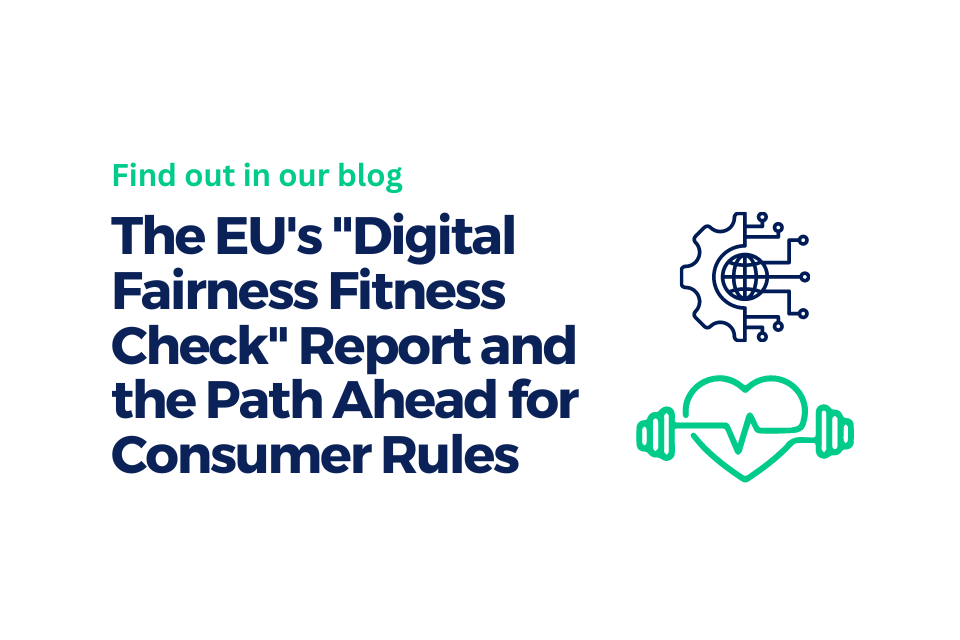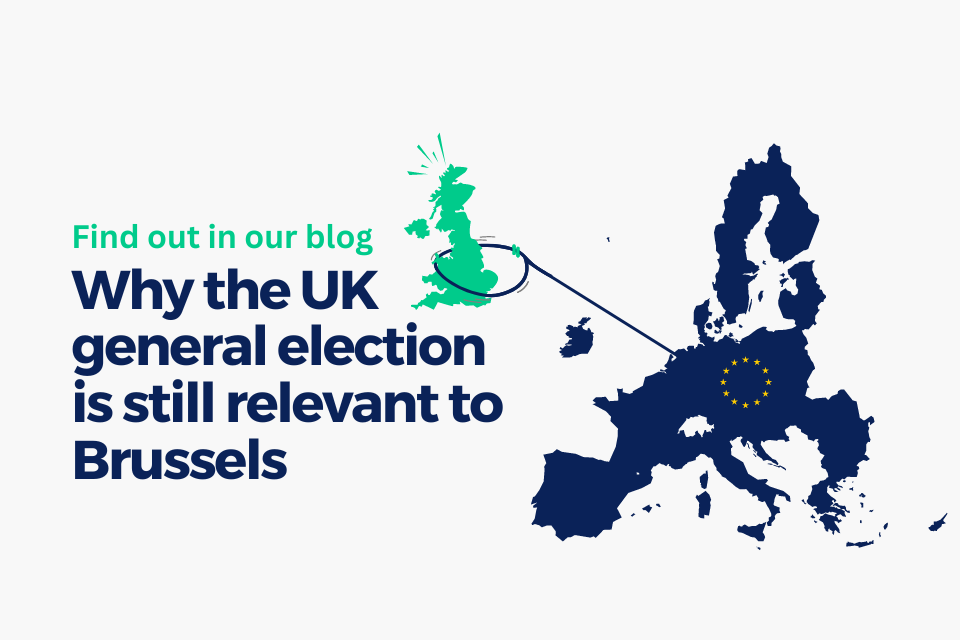What Might the U.S. Election Mean for American Companies in Europe?
203 days. That’s the countdown to the 2024 U.S. presidential election. Views vary on what a Biden or Trump win might mean for geopolitics, security, and relations with the rest of the world, but what might it mean for American companies operating in Europe?
For sure, they will encounter divergent regulatory and economic goals depending on who ultimately sits in the White House. There could be benefits such as potential deregulation, countered by risks from heightened trade tensions. At least one economic prism through which Europeans should expect both Biden or Trump to converge is anything that resonates with America’s white working-class – namely promoting US manufacturing jobs in the face of international competition and building greater domestic production capacity.
Not all potential implications under either Biden or Trump would be uniformly good or bad for American companies, but some scenarios may look as follows:
If Joe Biden Wins
Positive Implications:
-
Transatlantic Relations: Biden’s emphasis on rebuilding alliances and engaging with international partners could create a more stable and predictable environment for trade and investment, benefiting American companies in Europe.
-
Climate: Expect a continuation or strengthening of efforts to combat climate change, including re-engagement with international agreements, stricter environmental regulations, and initiatives promoting green energy. This could mean more stringent standards for emissions, higher investments in renewable energy, and potentially more subsidies for green technologies that would complement Europe’s strong emphasis on sustainability.
-
Digital Services and Data Privacy: Expect a focus on enhancing data privacy protections, potentially aligning more closely with the EU’s General Data Protection Regulation (GDPR). This might mean stricter regulations on data handling and privacy laws in the U.S., affecting companies operating across the Atlantic. On AI, the U.S. and China lead on innovation and China has moved to regulate generative AI systems, but the EU is creating the most comprehensive AI regulatory model, which plenty of non-EU countries are likely to follow. The implications for companies everywhere (large and small) are significant. Now is the time for them to get smart about the EU AI regulatory ecosystem.
-
Cybersecurity and Technology Regulation. Anticipate a focus on strengthening cybersecurity defenses and regulating technology to protect national security, privacy, and democratic institutions. This could involve new regulations on tech companies regarding content moderation, cybersecurity standards, and efforts to combat misinformation. For American and European companies alike, aligning regulations will be crucial for access to their respective markets.
Negative Implications:
-
Increased Business Costs: Biden’s regulatory approach, particularly regarding environmental protection, could increase operational costs for American companies. Stricter standards and regulations in areas like digital services and data privacy could also pose challenges for U.S. tech companies in Europe.
-
Tax: Proposals to increase corporate taxes could impact the profitability of American multinational companies, affecting their investment and expansion strategies in Europe.
-
Trade: Biden embraces free trade, but efforts to continue to protect American jobs could result in European retaliation, which could affect American businesses operating in Europe.
If Donald Trump Wins
Positive Implications:
-
Reduced Regulatory Burdens: Trump’s deregulatory policies could benefit American companies and competitiveness by lowering compliance costs, especially in sectors like energy and manufacturing. It might even attract European investment into American companies, making their products and services more competitive in the EU market.
-
Aggressive Trade Stance: Trump’s approach to renegotiating trade deals might aim to secure more favorable terms for American businesses, potentially opening new opportunities for U.S. companies in European markets.
-
Digital Services and Data Privacy. Less emphasis on strict data privacy regulations, with a possible continuation of a more laissez-faire approach to the tech industry. This might ease some operational burdens for tech companies but could raise concerns over data protection and cross-border data transfers between the EU and the U.S.
Negative Implications:
-
Trade Tensions: Expect a continuation of “America First” trade policies, which could include tariffs as a negotiating tool. This approach might lead to increased trade tensions and uncertainty regarding access to markets and supply chains, as well as retaliatory measures that could hurt American exporters and disrupt transatlantic trade flows. This equation is further complicated by EU elections this year. The future of the EU-US Trade and Technology Council (TTC) may be in jeopardy with a Trump victory.
-
Reduced Regulatory Burdens: American companies operating in sectors that are deregulated under a Trump administration might face reputational risks in the EU, where consumers and regulators place a high value on environmental sustainability and social responsibility. This could affect consumer trust and brand value for these companies in the European market.
-
Climate: A likely rollback of environmental regulations to promote traditional energy sectors like coal, oil, and gas, and a possible withdrawal from or disregard for international climate agreements. This could result in fewer regulatory burdens for industries but might also create challenges for companies invested in green technologies or those facing pressure to adopt sustainable practices. American renewable energy companies could find themselves at odds with Europe’s Green Deal, potentially limiting their competitiveness in the European market. And if Trump environmental policies are viewed as less ambitious or less aligned with EU standards, American companies could find themselves in the crosshairs of the EU’s carbon border adjustment mechanism (CBAM), which aims to ensure that companies from countries with less stringent environmental standards do not have a competitive advantage in the EU market.
-
Cybersecurity. Expect a continued emphasis on national security threats related to technology but potentially less focus on regulating the technology industry’s operations within the U.S., especially concerning content moderation and misinformation. This stance might ease some regulatory pressures on tech companies but could also lead to divergences with European regulations, particularly on privacy and digital governance.
And then there’s China. It touches on many key aspects of the US/EU relationship. The common ground revolves around trade practices, human rights issues, climate, and security threats, especially regarding technology and intellectual property rights. The US and the EU share a belief that China poses a threat to the global order and accept the need for a strategic response, but they have different approaches. Trump would likely take a transactional approach, penalizing EU allies if don’t play ball. This could leave American companies in an awkward no-man’s land in Europe. A Biden administration would try to engage the EU to contain China, but it could get tense at times. Meanwhile, EU policymakers are keen to de-risk from China, but EU industries are not really following suit.
A Trump presidency would mean a return to a confrontational stance toward China, particularly on trade. He would likely go unilateral or bilateral. A Biden presidency would engage allies, including the EU, in a coordinated approach to China, emphasizing the importance of multilateralism and alliances.
Transatlantic watchers sometimes fall into the trap of thinking that Washington and Brussels are the same technocratic towns with different accents and different weather patterns. It’s not true. They differ in institutional structures, policy-making processes, cultural and political backgrounds, global roles, economic policies, and legal frameworks. Even more reason for American companies to work with policy experts and outside counsel to set them on the right path to adapt to whatever political landscape we wake up to on November 6.
Acumen Public Affairs, the largest independent consulting firm in Brussels, helps companies navigate the EU. Get in touch if you want to talk.
Dan Morrison, a senior advisor to Acumen based in Washington, is an adjunct professor of strategic and political communications at American University, a former senior economic policy advisor at the U.S. State Department, the former head of global media at the OECD, and the former vice president of global communications at the Pew Research Center.
(AI was used when researching and writing this piece).


